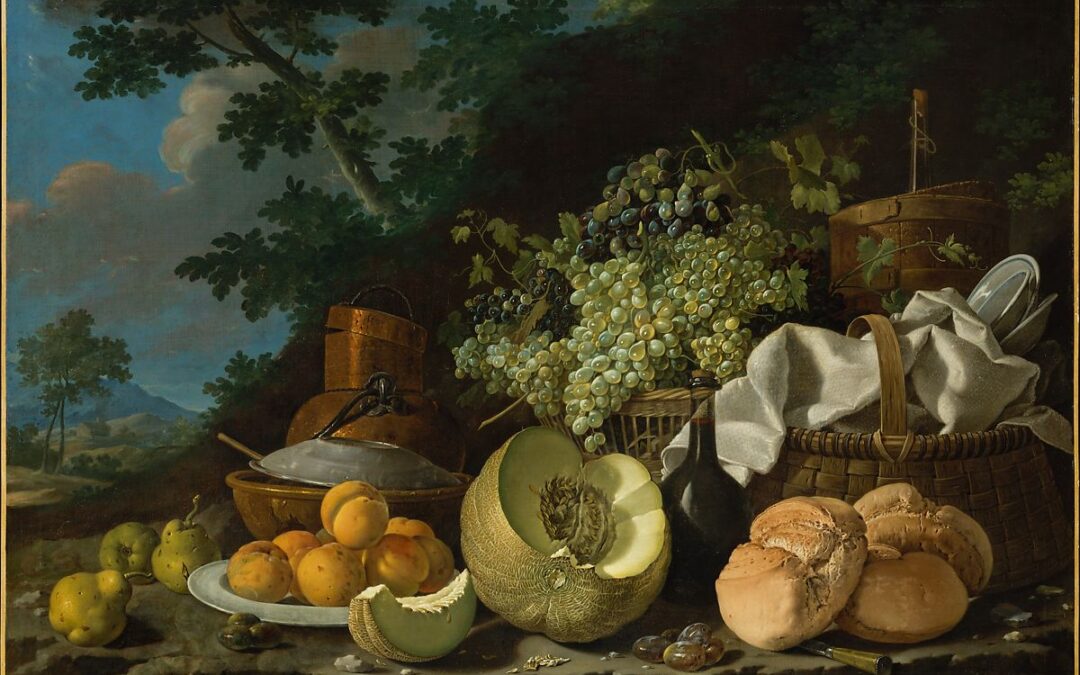 Meléndez was a painter of food, perhaps obsessively so. La Merienda or The Afternoon Meal is among his many still life works there is food ready to be eaten but without any people about to do so. In this instance, it’s a picnic without picnickers though someone...
Goldsmith’s “Retaliation” left unfinished at his death, alludes to dining “en piquenique” with mentioning the word. Motivated for being slighted by his friends, Goldsmith decided to get even at the dinner table. Attempting to get even with slights endured from...
Meléndez was a painter of food, perhaps obsessively so. La Merienda or The Afternoon Meal is among his many still life works there is food ready to be eaten but without any people about to do so. In this instance, it’s a picnic without picnickers though someone...
Goldsmith’s “Retaliation” left unfinished at his death, alludes to dining “en piquenique” with mentioning the word. Motivated for being slighted by his friends, Goldsmith decided to get even at the dinner table. Attempting to get even with slights endured from...
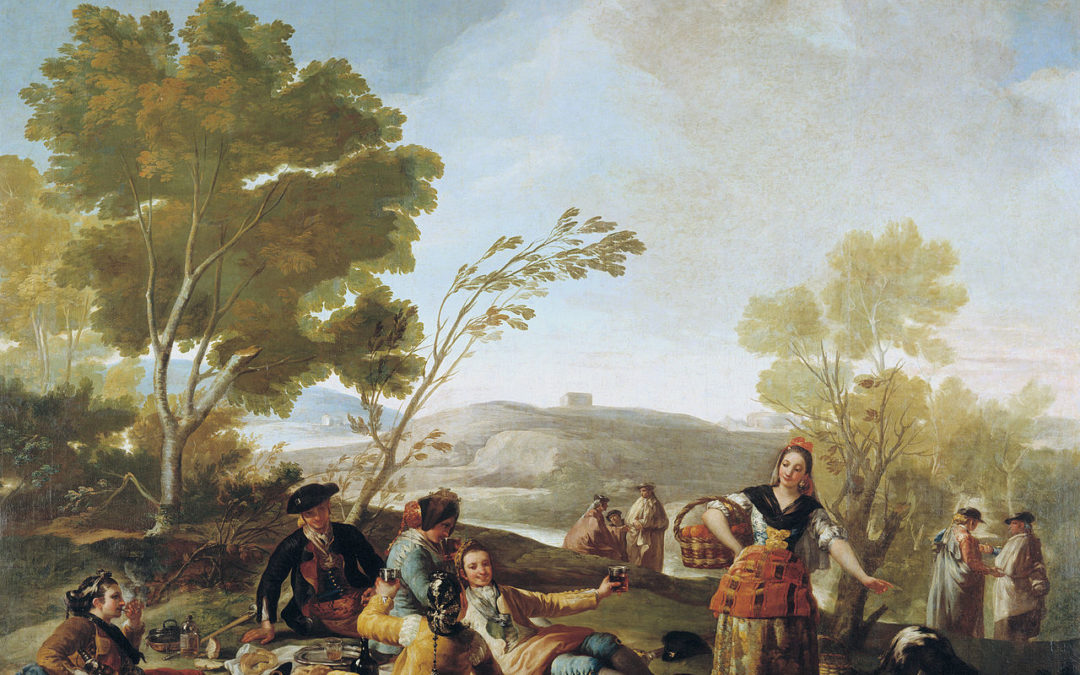 Merienda a orillas del Manzanares [Picnic At the Edge of the Manzanares River] is a painting for a tapestry intended for the dining room of the Prince and Princess of Asturias in the San Lorenzo Palace in Madrid. Goya described the subject as a merienda, a snack, or a...
Merienda a orillas del Manzanares [Picnic At the Edge of the Manzanares River] is a painting for a tapestry intended for the dining room of the Prince and Princess of Asturias in the San Lorenzo Palace in Madrid. Goya described the subject as a merienda, a snack, or a...
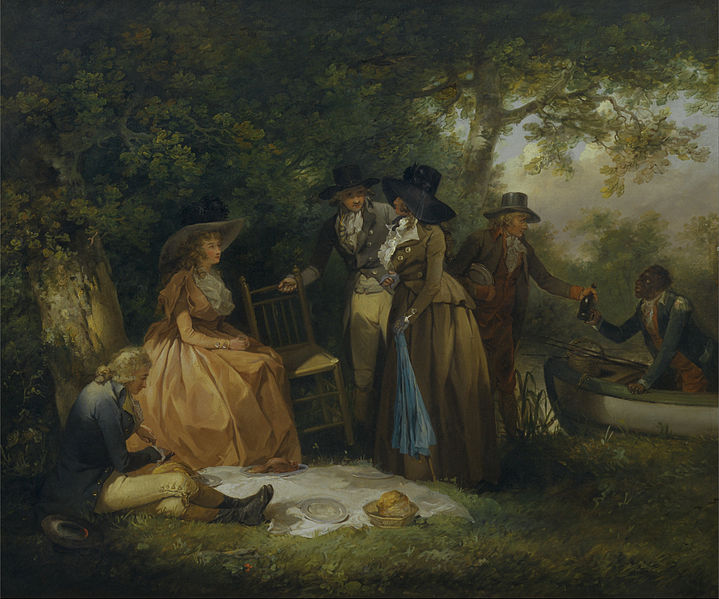 Morland’s painting The Anglers’ Repast, aka A Luncheon Party, is a scene of outdoor amusement and leisure. (There was as yet not word to identify this as a picnic.) Though the popular title is The Anglers’ Repast, the presence of fishing gear —...
Morland’s painting The Anglers’ Repast, aka A Luncheon Party, is a scene of outdoor amusement and leisure. (There was as yet not word to identify this as a picnic.) Though the popular title is The Anglers’ Repast, the presence of fishing gear —...
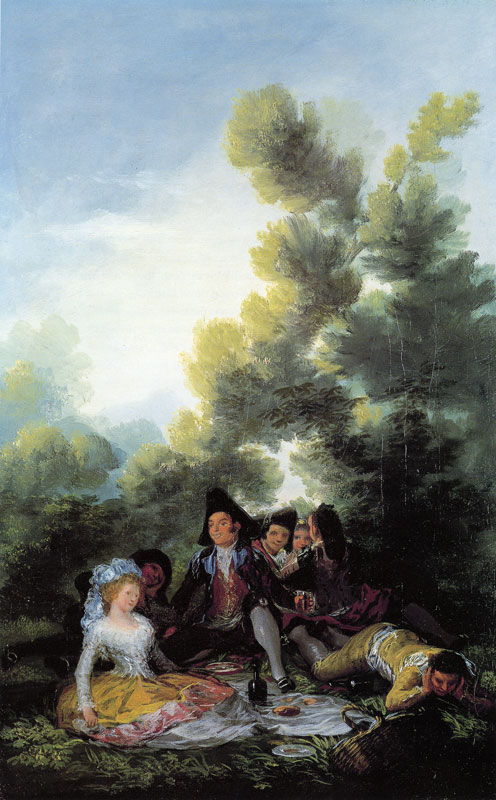 The etymological record of merienda is a blank between 1554 and 1626. After surfacing in Lazarillo de Tormes as a snack, it does not reappear until Quevedo’s El Buscon denotes a typical alfresco picnic. The change in meaning is unaccountable. In this instance,...
The etymological record of merienda is a blank between 1554 and 1626. After surfacing in Lazarillo de Tormes as a snack, it does not reappear until Quevedo’s El Buscon denotes a typical alfresco picnic. The change in meaning is unaccountable. In this instance,...
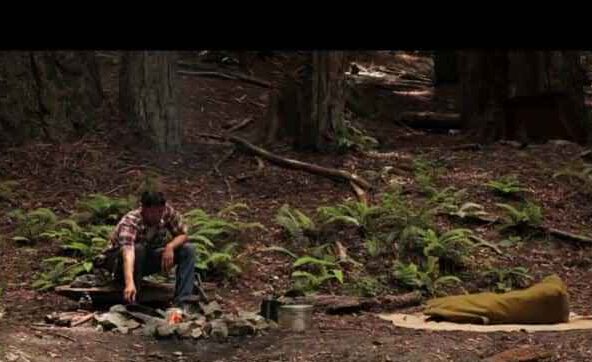 It resembles a picnic; it’s recreational, but it’s lunch on a trout-fishing excursion on Michigan’s Upper Peninsula. In Ernest Hemingway’s story “Big Two-Hearted River, Part Two,” Nick Adams breaks to have a sandwich. Nick is...
It resembles a picnic; it’s recreational, but it’s lunch on a trout-fishing excursion on Michigan’s Upper Peninsula. In Ernest Hemingway’s story “Big Two-Hearted River, Part Two,” Nick Adams breaks to have a sandwich. Nick is...
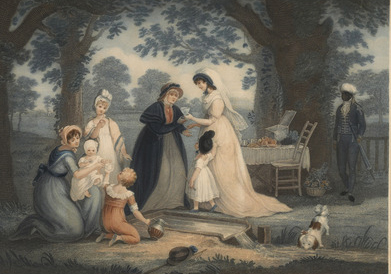 Spilsbury does not use picnic (if she even knew the word) to describe the luncheon because it was not yet in everyday use. However, The Drinking Well in Hyde Park (1802) reminds us that the park has long been a popular gathering place for socializing and leisure....
Spilsbury does not use picnic (if she even knew the word) to describe the luncheon because it was not yet in everyday use. However, The Drinking Well in Hyde Park (1802) reminds us that the park has long been a popular gathering place for socializing and leisure....
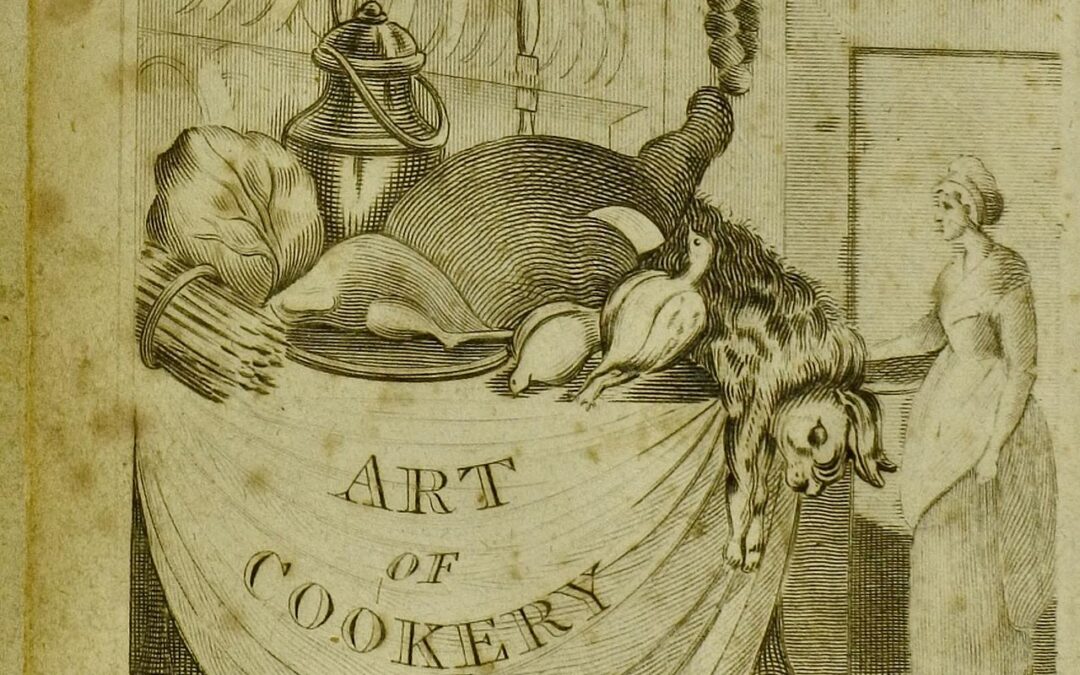 Fricassee is picnic food when dining indoors. It’s mentioned in Samuel Foote’s The Nabob (1772) and Mary Belson Elliott’s The Mice and Their Pic Nic (1809). Had Elliott needed a recipe, she might have found it in Mrs. Rundell’s A New System of...
Fricassee is picnic food when dining indoors. It’s mentioned in Samuel Foote’s The Nabob (1772) and Mary Belson Elliott’s The Mice and Their Pic Nic (1809). Had Elliott needed a recipe, she might have found it in Mrs. Rundell’s A New System of...
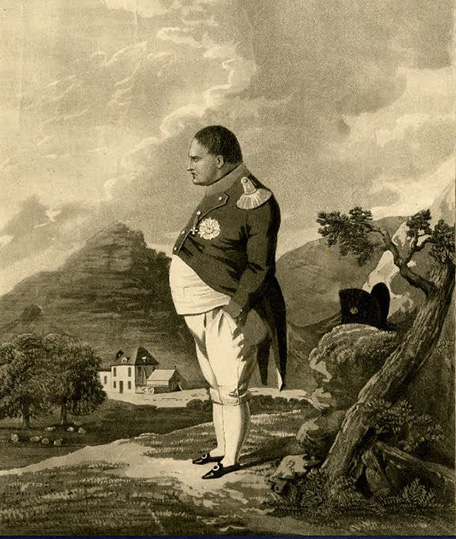 Five years into his six-year exile on St. Helena, Napoleon was pale, tired-looking, and fat, though his face showed no fatigue or illness. Still, after a ten-mile journey on horseback (on hilly terrain), he uncharacteristically stopped for a social visit at Mount...
Five years into his six-year exile on St. Helena, Napoleon was pale, tired-looking, and fat, though his face showed no fatigue or illness. Still, after a ten-mile journey on horseback (on hilly terrain), he uncharacteristically stopped for a social visit at Mount...
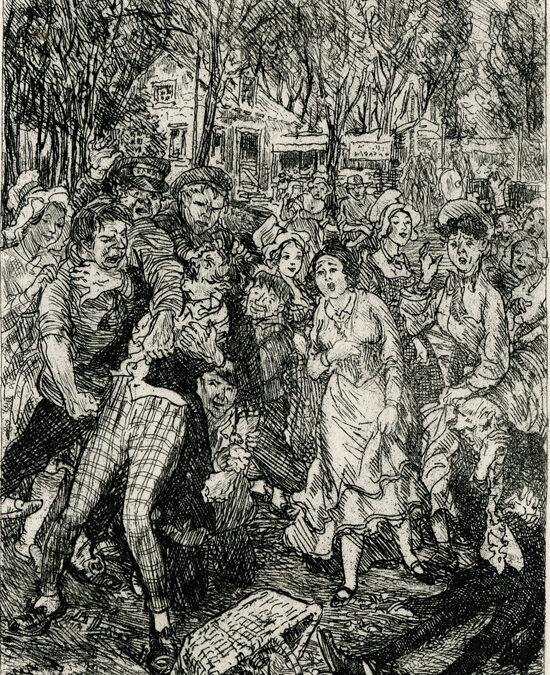 De Kock sometimes styled the French Dickens, is known for his broad portrayals of the Parisian working-class society, affairs, cabarets, and other entertainment. In Monsieur Dupont, the entertainment spotlighted is a tumultuous picnic at Romainville, still a popular...
De Kock sometimes styled the French Dickens, is known for his broad portrayals of the Parisian working-class society, affairs, cabarets, and other entertainment. In Monsieur Dupont, the entertainment spotlighted is a tumultuous picnic at Romainville, still a popular...










